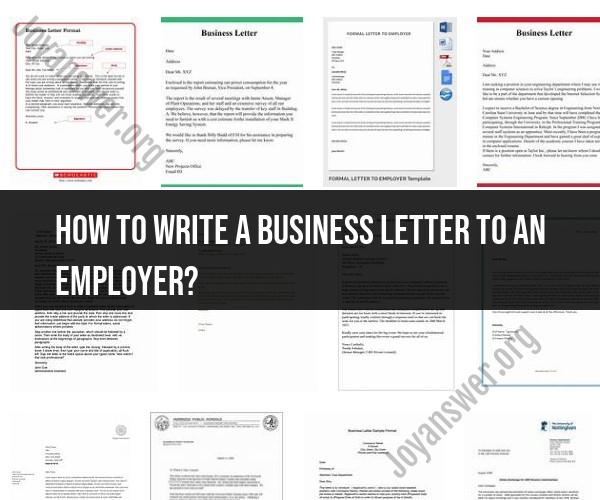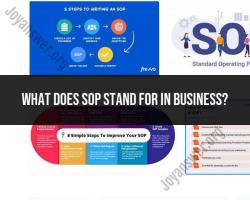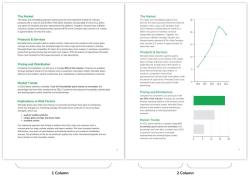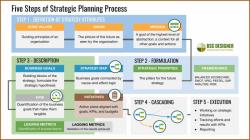How to write a business letter to an employer?
Writing a business letter to an employer is an important communication skill, especially when you're applying for a job, expressing appreciation, making an inquiry, or addressing workplace concerns. Here's a guide on how to write an effective business letter to an employer:
1. Format the Letter:
- Use a professional format with your name and contact information at the top, followed by the date, the employer's name and contact information, and a formal salutation.
2. Choose a Clear and Appropriate Salutation:
- Address the employer with a formal salutation. If you know the person's name, use "Dear [Mr./Ms. Last Name]." If you don't know the name, you can use "Dear Hiring Manager" or "To Whom It May Concern."
3. Start with a Strong Opening:
- In the first paragraph, state the purpose of your letter and be concise. If you're applying for a job, mention the position you're interested in and how you learned about it. If you're writing for another reason, briefly explain the nature of your inquiry or concern.
4. Provide Clear and Relevant Information:
- In the body of the letter, provide details, evidence, or examples to support your purpose. Use clear and concise language, and organize your points logically.
5. Customize Your Content:
- Tailor the letter to the specific employer or situation. Show that you've done your research and are genuinely interested in the company or the position you're applying for.
6. Address Concerns and Questions:
- If you have specific questions or concerns, address them clearly and politely. This demonstrates that you're thoughtful and proactive.
7. Showcase Your Qualifications (Job Application):
- If you're applying for a job, highlight your qualifications and explain how your skills and experience align with the job requirements. Be specific about how you can contribute to the company's success.
8. Express Gratitude (Thank You Letter):
- If you're writing to express thanks, be specific about what you're grateful for and why it matters. A thank-you letter should also express your continued interest in the company or the opportunity.
9. Address Workplace Concerns (Complaint Letter):
- If you're addressing workplace concerns, describe the issue clearly and objectively. Suggest potential solutions or request assistance in resolving the matter.
10. Maintain a Professional Tone:
- Keep the language and tone of the letter professional and respectful. Avoid emotional language or personal attacks, especially in complaint letters.
11. Use Proper Closing and Signature:
- In the closing paragraph, summarize your main points and provide a clear call to action or next steps. Use a formal closing like "Sincerely" or "Yours faithfully," followed by your handwritten signature if sending a printed letter.
12. Proofread and Edit:
- Carefully proofread the letter for grammar, spelling, and punctuation errors. Check for clarity and readability. It's often helpful to have someone else review the letter as well.
13. Include Contact Information:
- Make sure your contact information is accurate and up-to-date, so the employer can easily reach you if necessary.
14. Follow Up:
- If you're writing to apply for a job or inquire about a job application, express your interest in following up to discuss your application further. Provide your preferred method of contact.
15. Use Appropriate Enclosures (If Any):
- If you're including additional documents or attachments, mention them in the letter and list them in the enclosure notation at the bottom.
16. Respect Confidentiality (If Applicable):
- If you're discussing sensitive or confidential matters, mention that you understand the importance of confidentiality and that you're taking appropriate measures to protect it.
17. Close Politely:
- End the letter with a polite closing, such as "Sincerely" or "Yours faithfully," followed by your name typed beneath your signature if sending a printed letter.
18. Format for Email:
- If you're sending the letter via email, follow similar formatting rules but include a clear and concise subject line that reflects the purpose of the email.
19. Attach a Resume or CV (Job Application):
- If you're applying for a job, attach your resume or CV as requested in the job posting.
20. Keep Copies for Your Records:
- Save copies of the letter and any attachments for your records.
Remember that a well-written business letter reflects professionalism and can leave a positive impression on the employer. Tailor your letter to the specific context and be sure to proofread it before sending.













